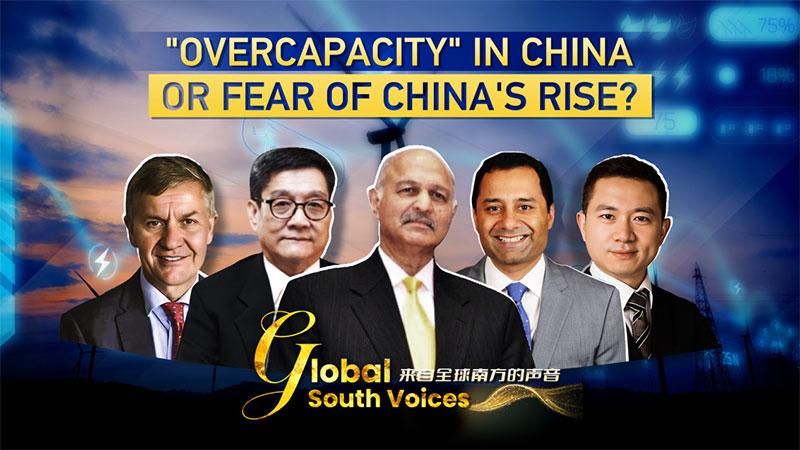Reply To:
Name - Reply Comment

China Global Television Network’s (CGTN) Global South Voices sheds light on the vulnerability of the "China overcapacity" hype, revealing the protectionist agenda behind such accusations. Guests from Malaysia, Pakistan, China, and Norway dismantle the myth during the show's fourth episode, showcasing the real motivations driving the sensationalized narrative.
In recent times, some western politicians and media have greatly exaggerated the idea of "overcapacity" in China, specifically honing in on the growth of Chinese manufacturing in emerging sectors such as electric vehicles (EVs), lithium-ion batteries, and solar panels. This narrative implies that Western fears about their own competitiveness in these industries are prompting them to brand China's advancing industries as overcapacity in an attempt to thwart their development.
"There's a lot of hype in certain countries, especially certain Western countries about China's so-called overcapacity," said host Mushahid Hussain Sayed, chairman of Pakistan's Senate Defense Committee on CGTN’s show Global South Voices.
Out of geopolitical concerns, western countries use multiple means to suppress China's growth, the CHIPS and Science Act being one of them. Chen Xi, founder of Harbor Overseas, believes that the U.S. should join the market competition in China and use the Chinese supply chain to collaborate, to provide a better option to getting to a green economy and adapt to climate change globally rather than fabricating excuses to hinder China's development. “A win-win situation could be achieved should the U.S. find the appropriate way to cooperate with China, and this would also benefit the whole world,” he added.
Koh King Kee, president of the Center of New Inclusive Asia praised China's efforts in developing green technology and bringing tangible benefits to those underdeveloped regions around the world. He argued that actually the world needs China in these industries. China's rise is an opportunity for the world. "We are from the Global South, and we welcome China producing (more) cheap goods." The U.S. cannot accept China's rise as peers, because the U.S. was the sole superpower since the end of the Cold War. But China's rise is unstoppable. This is the reality that the U.S. must accept”.
"I think that there is concern that certain Western nations have about China's stellar and exponential, amazing economic growth and how to make sense of that. And I think the second reason is political because this is an election year ... So I think we cannot really dissociate or decouple what is going on in terms of the policy utterances that are coming from the U.S. and domestic politics in the U.S.," Associate professor of Economics at Habib University, Karachi Aqdas Afzal said.
Norwegian diplomat Erik Solheim emphasized the importance of Europe not blindly aligning with the U.S. on every issue, particularly in its approach towards China. He expressed his belief that a collaborative effort between Europe and China could lead to significant improvements in global relations. "With the good will in Europe and in China, we can go a long way to make a better world together," he said. Solheim also commended China for reducing prices in developing countries through the implementation of green technology.